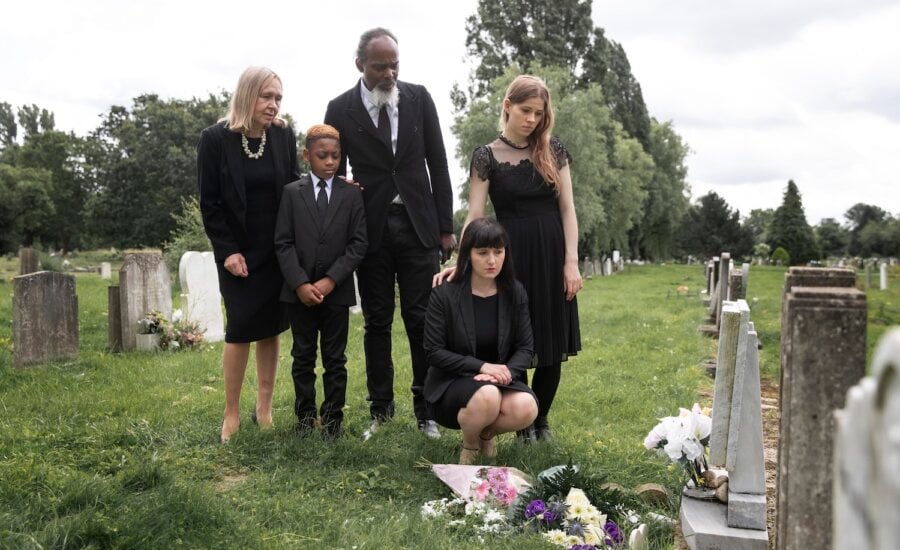Taxes halved their inheritance. Could anything be done?
Ontario heirs face a huge tax bill after their parents’ deaths—highlighting the importance of planning ahead to reduce taxes and protect your estate.
Advertisement
Ontario heirs face a huge tax bill after their parents’ deaths—highlighting the importance of planning ahead to reduce taxes and protect your estate.

I just read this article for which accountants were interviewed and said that there were ways decrease the amount of tax paid but they would not provide specific examples. Wondering if you would consider writing about this topic.
—Sarah
Hi Sarah, my wife read this same article and thought the same thing. What could these people have done to save tax and why did they owe so much? For those who didn’t see the article, it is entitled “Ontario woman says government took ‘every cent’ of parents’ savings.”
It is a story about two young adults outraged by the amount of wealth lost to taxes—$659,000—when their parents, in their early 60s, both passed away within a year of each other.
I can sympathize with the children, thinking they were going to get this much money only to find they were getting substantially less. Without understanding why, I’m sure it was confusing and hurtful. Let’s walk through why the tax was so high and what if anything could have been done.
Their father died, after their mother, in December, so he had a full year of income, which I’m assuming was $175,000. There was an RRSP worth $715,000, and I will assume capital gains on the cottage of $850,000. This combination resulted in taxes of about $659,000.
What could they have done to lower the amount of tax? In this case, when death is sudden, there is not much you can do. The father’s salary is taxable and there is no getting around that.
The same goes for the RRSPs; there is no getting around the tax. The children were named as beneficiaries of the RRSPs, which saved probate fees, but you can’t transfer an RRSP to an adult child like you can a spouse. The funds are withdrawn and the full value goes to the children, but the estate must pay the tax on the value of the RRSP. Regardless, the children end up paying the tax.
It is possible to reduce the amount of capital gains paid by designating either the house or cottage as the primary residence and naming the property that has appreciated the least as the secondary property. If there is a bright side to capital gains tax, it is that 50% of your gain is tax-free, so on a $850,000 gain you only pay tax on $425,000.
When you add it all up—salary $175,000, plus $715,000, plus $425,000 taxable capital gain—that is taxable income of $1,315,000 and tax of $659,000 or 50% of the total income.
This is why it looks like the government took all their parents’ money. The children inherited the house and cottage and the only cash money they had to pay the taxes was the money from the RRSP. Out of $715,000, they were only left with about $56,000 between the two of them to cover the funeral, accounting, and legal fees, and to maintain the properties until one or both could be sold.
I’m sure when their parents did their planning, if they did, they assumed they might live to age 90, drawing down on their RRSP/RRIF over time to minimize the tax. They may have sold their principal residence and moved to the cottage, designating it as the principal residence. This would have deferred—and, with inflation, shrunk—the capital gain. They may never have considered what the situation would look like if the unexpected happened.
If they had, they may have considered purchasing life insurance. Life insurance is for “just in case” the unexpected happens. They could have purchased some term insurance with an option to convert to permanent insurance if taxes continued to be an estate issue. The insurance doesn’t minimize the tax, but it provides the children with tax-free money right away—money that gives them time to pause and think rather than feel under pressure to sell properties at a time that may not be opportune.
This story serves as a good reminder that when doing your planning, consider what the picture may look like if the unexpected happens and then decide if you want to do anything about it. In this case the parents may have been aware, and understood the tax implications, if they both passed away early. Maybe they felt the children would just sell one or both properties and everything would be good. For the adult children this was unfamiliar territory with a big learning curve.
Share this article Share on Facebook Share on Twitter Share on Linkedin Share on Reddit Share on Email